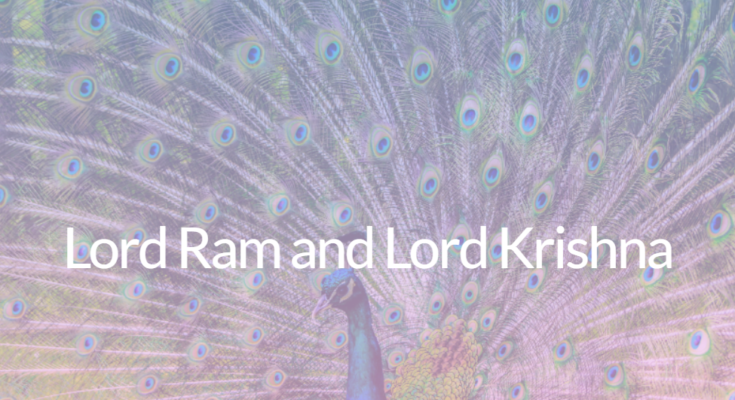Introduction:
In Hindu mythology, Lord Ram and Lord Krishna are two of the most revered and beloved deities. Both are considered incarnations of Lord Vishnu and have played significant roles in shaping the Hindu religion and imparting valuable life lessons. While they share certain similarities, there are also distinct differences between Lord Ram and Lord Krishna. In this article, we will explore these differences in terms of their personalities, life stories, and teachings.
Differences between Lord Ram and Lord Krishna:
1. Personalities:
Lord Ram is known for his righteous and idealistic nature. He is often portrayed as the Maryada Purushottam, the perfect man who always abides by dharma (righteousness) and follows the path of truth and justice. On the other hand, Lord Krishna is considered the Purna Avatar, the complete incarnation of Lord Vishnu, and is known for his playful and mischievous nature. He is often depicted as a cowherd, surrounded by his devotees and engaging in various pranks and pastimes.
2. Life stories:
Lord Ram’s life story is primarily narrated in the epic Ramayana, which portrays his exile from Ayodhya, his quest to rescue his wife Sita from the demon king Ravana, and his eventual return to the kingdom after defeating evil. Lord Krishna’s life story, on the other hand, is chronicled in the epic Mahabharata, which mainly focuses on the Kurukshetra war between the Pandavas and Kauravas. Krishna serves as the charioteer of Arjuna and imparts the teachings of the Bhagavad Gita.
3. Teachings and philosophies:
Lord Ram’s teachings revolve around the concepts of dharma, duty, sacrifice, and loyalty. He emphasizes the importance of fulfilling one’s responsibilities towards family, society, and the nation. Ram teaches us to prioritize righteousness over personal desires and to stand up against injustice. Lord Krishna, on the other hand, emphasizes the path of selfless devotion and surrender to God. He teaches the principles of Bhakti Yoga and preaches the importance of detaching oneself from the fruits of actions.
4. Relationships and love:
Lord Ram is often depicted as an ideal husband, devoted to his wife Sita and upholding the sanctity of marriage. He is considered a symbol of marital love, commitment, and fidelity. Lord Krishna, on the other hand, is known for his divine love and affection towards his devotees, especially the Gopis of Vrindavan. His playful interactions and rasleelas with the Gopis depict the deeper philosophical concept of soul’s longing for reunion with the divine.
5. Worship and festivals:
Lord Ram is primarily worshiped during the festival of Ram Navami, which commemorates his birth anniversary. Devotees read the Ramayana, chant his name, and seek his blessings for a blissful life. Lord Krishna is worshipped during Janmashtami, celebrating his birth, and Dahi Handi, which involves forming human pyramids to reach and break a pot of curd, symbolizing his playful nature as a child.
Conclusion:
While Lord Ram and Lord Krishna are both revered deities in Hinduism, there are notable differences between them in terms of their personalities, life stories, teachings, and worship. Lord Ram personifies righteousness, duty, and loyalty, while Lord Krishna embodies love, devotion, and playfulness. Both have inspired millions with their teachings and continue to be revered and worshipped by devotees around the world. Ultimately, their stories and teachings remind us of the various aspects of spirituality and guide us towards leading a virtuous and meaningful life.



